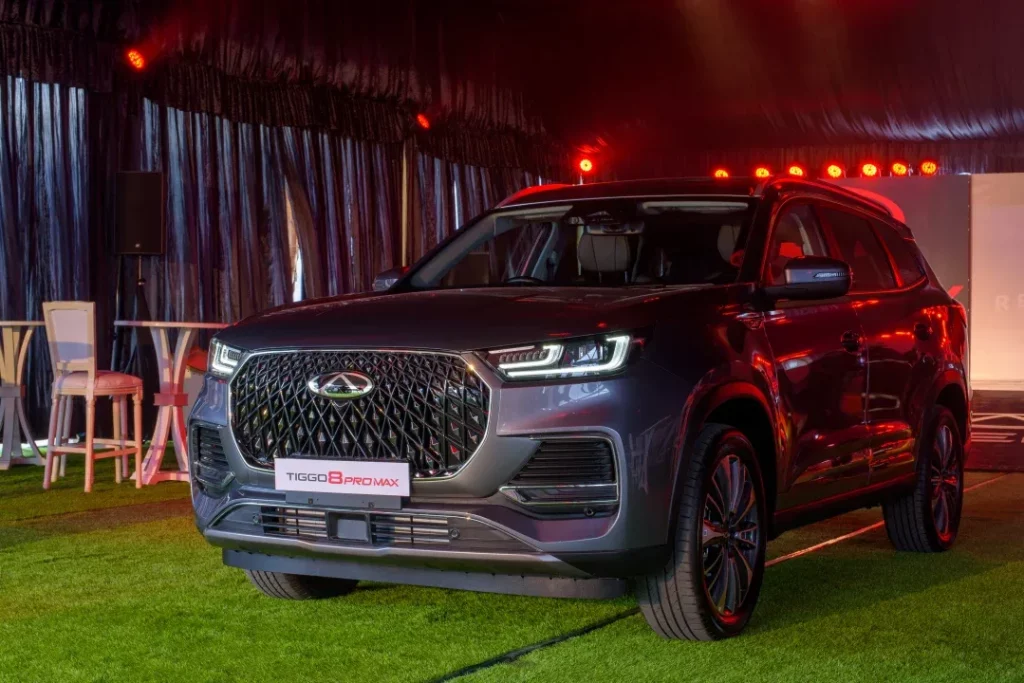In a market long dominated by second-hand imports, Chinese automaker Chery is shaking up Kenya’s automotive scene with a bold entry targeting the nation’s fast-growing middle class.
In partnership with Caetano Kenya, the brand is rolling out a lineup of electric and hybrid SUVs that blend affordability, advanced technology, and reliability, offering a new value proposition for local buyers long priced out of premium mobility.
With more than 15 million vehicles sold globally, Chery’s global momentum now finds a home in East Africa. Its Kenyan launch features the Tiggo 4 Pro, Tiggo 7 Pro, and flagship Tiggo 8 Pro Max, all priced from KES 3.9 million (about USD 30,200).
These SUVs arrive equipped with advanced Driver Assistance Systems (ADAS), efficient 2.0L TGDI engines, and premium interiors that rival higher-end rivals, backed by an industry-leading 7-year/200,000 km warranty.
In a country where reliability defines brand loyalty, Chery’s entry signals a serious challenge to Kenya’s USD 1.28 billion used-car market, which remains dominated by imports from Japan and the UK.
That market is projected to grow to USD 1.5 billion by 2030, but Chery and Caetano are betting on a new narrative, one built on local assembly, green mobility, and affordable innovation.
Local Assembly, Global Vision
Chery’s local distributor, Caetano Kenya, is no newcomer. As the official dealer for Hyundai, Kia, Renault, Ford, and JMC, it already commands a robust national footprint of dealerships and service centres.
Under the new partnership, Caetano aims to sell 200–400 units in Chery’s first year, with local assembly (CKD kits) slated to begin in 2026.
“Built in Kenya, for Kenya, this is not just our strategy; it’s our promise,”
said Aurélien Glay, Managing Director of Caetano Kenya, emphasising the brand’s commitment to industrial growth, job creation, and skills transfer across Kenya’s auto ecosystem.
The collaboration directly supports the government’s “Buy Kenya, Build Kenya” initiative, which incentivises local manufacturing and assembly to reduce import dependency.
With policies favouring local content and tax exemptions for CKD operations, Chery’s move is perfectly timed to ride the wave of Kenya’s industrial renewal.
Why Timing Matters: The EV Wave Is Building
Across Africa, the electric mobility revolution is shifting into high gear. The continent’s EV market, worth USD 0.45 billion in 2025, is forecast to hit USD 4.2 billion by 2030, driven by a massive 56.3% CAGR, one of the highest globally.
China’s automakers are leading this charge:
- BYD and Leapmotor are already deploying charging stations in South Africa, with BYD planning 200–300 by 2026.
- Nigeria is experimenting with CNG-powered alternatives and expanding EV imports to reduce fuel dependency.
In this context, Chery’s Kenyan push is part of a broader African strategy leveraging affordability, design appeal, and hybrid flexibility to win over a continent balancing sustainability with economic constraints.
READ ALSO:
Why Kenya Could Become Africa’s EV Market Leader by 2030
Challenges on the Road Ahead
Despite the optimism, Chery faces steep terrain. Kenya’s auto market still leans heavily on used imports, and consumer financing remains limited for new vehicles.
Building trust, after-sales networks, and charging infrastructure will take time and investment.
However, analysts point out that Chery’s value-driven pricing, robust warranties, and focus on connected, efficient SUVs may resonate with Kenya’s growing urban class professionals and families seeking modern comfort without luxury markups.
The brand’s early digital marketing push and flexible finance plans are also key to unlocking uptake.
The Bigger Picture: A Spark for a Greener Kenya
Kenya’s automotive future is being reshaped by policy, partnerships, and consumer awareness. With its renewable-heavy power grid (over 80% green) and a young, aspirational population, the country is primed for an EV shift.
Chery’s entry could mark a turning point, demonstrating that electric and hybrid mobility can be attainable, reliable, and locally built.
Ronnie Paul is a seasoned writer and analyst with a prolific portfolio of over 1,000 published articles, specialising in fintech, cryptocurrency, climate change, and digital finance at Africa Digest News.






